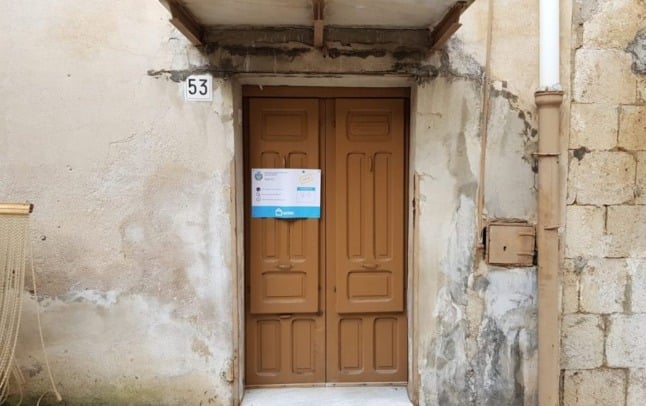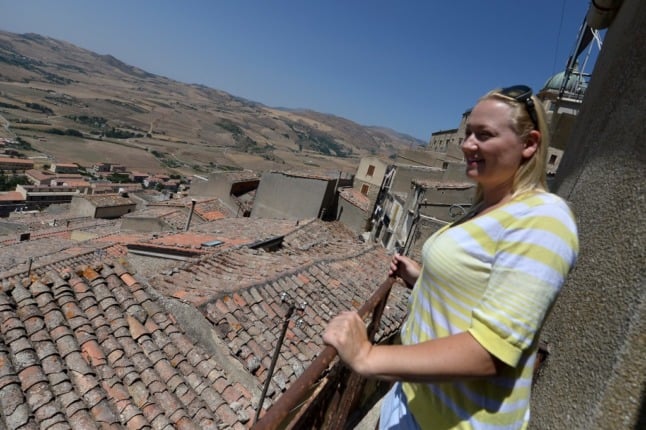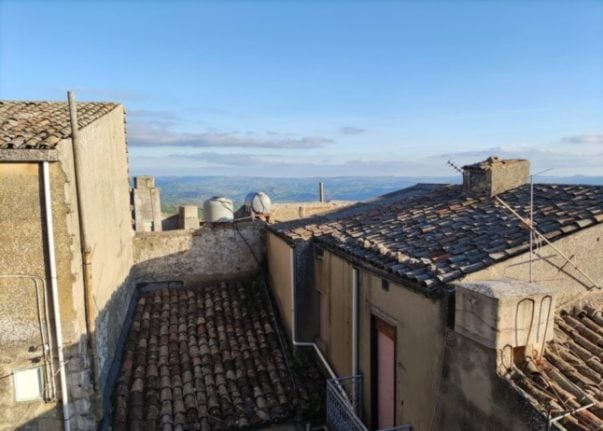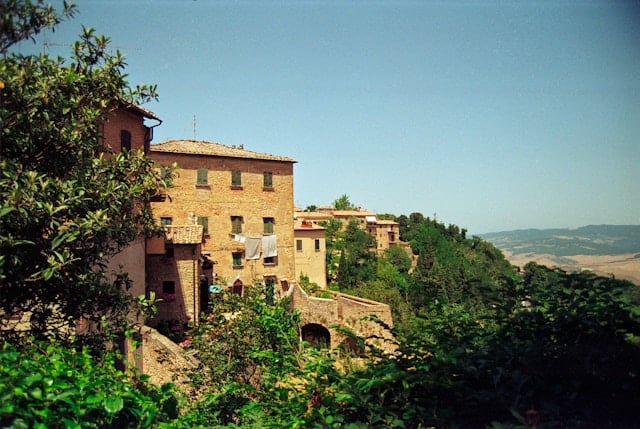Dozens of towns across Italy are now offloading crumbling properties for just one euro, but a few spots have come up with a clever move which is proving more alluring.
They’re selling old but cheap turnkey homes that are immediately livable – or at least, only in need of minor fixes.
The most successful towns so far have been Troina and Mussomeli in Sicily, the quaint isolated village of Carrega Ligure in Piedmont, and the town of Latronico in deep Basilicata.
Local authorities in these areas have opened real estate offices and created online platforms advertising empty old homes on sale for as little as €4.000, most in great shape and some even with furniture. Catalogues have been drawn up to show newcomers what’s on the market.
These places have also put a few dilapidated one euro properties up for sale, but local administrators say the demand for these has been much lower.
OPINION:
- Why Italians aren’t snatching up their country’s one-euro homes
- Bargain homes and fewer crowds – but Italy’s deep south is not for everyone
“It’s interesting to welcome visitors who initially want a one euro house but then, after taking a look at other available, more expensive properties, change their minds and snatch up a ready-to-occupy home”, Latronico’s deputy mayor Vincenzo Castellano tells The Local.
Castellano believes the appeal of the one-euro homes leis solely in their “advertisement-like lure”; the thought of buying a house for less than the cost of an espresso would excite anyone.
But then, he says, interested buyers are taken aback by the many requirements and excessive bureaucracy the schemes entail.
These include completing restyle work within three years and paying a guarantee deposit of between €2,000 and €5,000 on top of the extra expense and hassle of giving it a thorough makeover.

The front door of a one-euro house for sale in Mussomeli, Sicily. Photo: Case1euro.it
Such strict rules pushed American buyer Anne Procianos Cohen to opt instead for a €20,000 traditional dwelling in Latronico’s old district. Minor work needed included re-activating the utilities.
“We wanted a place we could immediately live in,” she says. “It was the pure joy of buying a turnkey house, not a shell, through speedier procedures and knowing exactly that we wouldn’t be bearing any unpredictable costs with a massive renovation. We needed a high degree of certainty in our investment.”
Anne and her husband moved in the house even before finalizing the purchase deed, and spent one whole month in Latronico this summer.
“We loved the great added value of directly experiencing how local people lived in these old homes,” she said.
READ ALSO: The parts of Italy where house prices keep rising despite the pandemic
“Had we bought a one euro property and totally changed it, the house would have lost its charm, character and practicality. You can see that our house has an intelligent design to it, we wanted to keep that even if it meant spending weeks trying to figure out how the window shutters worked.”
Budget is key. Procianos notes that you’re never really getting a one euro home due to unpredictable renovation expenses, and that even the notary costs, ranging between €2,000 and €4,000, are equal to those paid for the sale of a turnkey property.
I always say, you get what you pay for, so with a one-euro house we were afraid we’d get a … one-euro house worth that exact amount in all ways, but then how much more to spend? If you decide to go down that road, you need more financial resources and flexibility than we have.”
Procianos advises others who are willing to buy a cheap turnkey home – or even a one euro one – to first take a deep dive into local village life and pick the location carefully.
It’s been crucial to them that Latronico has everything – from boutiques to pharmacies, while good hospitals are nearby.
Choosing an isolated village could be risky, she says, as often in Italy these tend to be totally empty, without even a bar or supermarket.

Castellano argues that while buyers of ready-to-occupy cheap dwellings don’t get to re-shape these from scratch like a blank canvas, as they could with a one euro house, they’re offered a wider choice of newer homes and know exactly what they’re getting into. They also get to meet the old owners to negotiate lower prices.
UK-based Muhammad Ramzan snapped up a panoramic apartment in Mussomeli for just €4,500, in need of minimal fixes, after touring the whole town and seeing 22 properties ranging from one to 550.000 euros, including a rural villa with pool.
Mussomeli’s town hall has set-up a multilingual task force of volunteers who show visitors what’s for sale and assist them.
“You have more options when you search for homes that are above one euro, and that’s crucial to keep in mind,” Ramzan says. “If you focus on just one crumbling property and then there’s a problem with it, you run out of alternatives and get stuck.”
“There was always something missing or wrong with all the other 21 properties I visited and scrutinized – one had a low roof, another small rooms and required a lot of structural work.”
“I finally picked a house overlooking the castle because of the stunning view and sense of utter rural peacefulness. The minor fixes needed, mostly of extra design, I do those in my own time, at my own pace”, he explains.
He advised other buyers to “take things slowly, avoid rushing in to buying a house. It’s better to think twice than to grab a one euro home sight unseen, maybe even online, just because you think you’re getting a great bargain.”
READ ALSO: What taxes do you need to pay if you own a second home in Italy?
What frightened Ramzan away from the one euro scheme in Mussomeli was the higher risk entailed, linked to meeting the restyle deadline or face losing the deposit guarantee, and how much he’d end up spending to fully renovate it.
“If you invest just 4,500 euros in a cheap, immediately livable property that’s way less than doing a basic restyle of a one euro home. I also kept some of the original furniture”, he says.
The goal of most one-euro schemes in Italy is to breathe new life into dying rural communities, but Procianos thinks this can also be a negative point.
“Revitalization projects are extraordinary, however, we’re not needed to make a town vital because Latronico is already vital, and that makes a huge difference to us. It’s close to the coast and beautiful cities like Matera, there’s a pristine scenery and popular thermal baths.”
“Everything is close at hand”.
See more in The Local’s Italian property section.




 Please whitelist us to continue reading.
Please whitelist us to continue reading.
Member comments